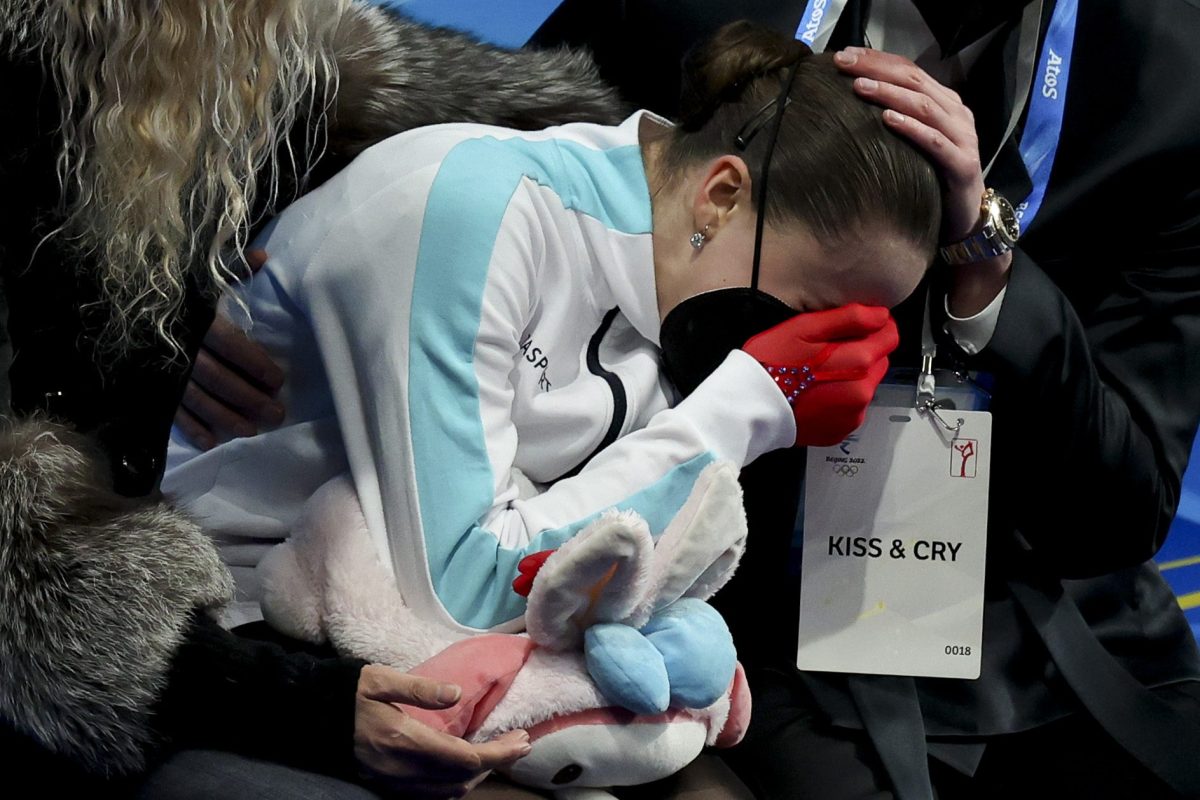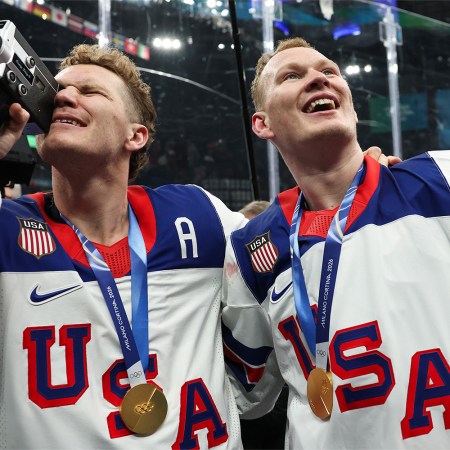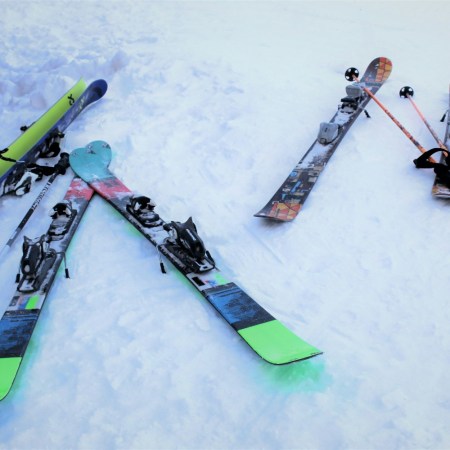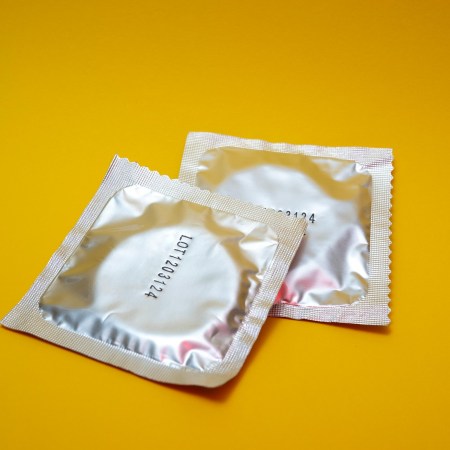When 15-year-old Russian figure skater Kamila Valieva finished her free skate on Thursday night, the devastation was immediate. The skater, who had been cleared to compete despite being at the center of a doping scandal after testing positive for a banned substance, had been the heavy favorite to win the gold medal but fell twice and stumbled out of two other jumps during her routine, earning her lowest score of the season and finishing in fourth place. As soon as the music stopped, she buried her face in her hands and began to sob.
Her coach Eteri Tutberidze’s first reaction, however, was to criticize rather than console. “Why did you let it go?” The New York Times reported Tutberidze asked Valieva in Russian as the skater came off the ice. “Why did you stop fighting? Explain it to me, why? You let it go after that axel. Why?”
It should be obvious why. No 15-year-old should have to deal with the enormous pressure of being judged by the entire world, thrust into the spotlight for allegedly cheating her way to the very top of her sport. It’d be tough for any adult to handle, but it’s no wonder that someone who’s not even old enough to drive would crumble under the added scrutiny. And while part of the blame certainly lies with Valieva for going along with it — assuming that the ongoing investigation doesn’t reveal she was drugged without her knowledge or consent — ultimately, she is a child, and the real moral failings here are those of all the adults around her.
The fact of the matter is, Valieva devoted her entire life to winning gold at the Olympics, and not only did she fail to achieve that goal, but she now likely will never have another shot at it. A ban from figure skating is still a possibility, depending on what the doping investigation reveals, and even if she manages to somehow skate again, the positive test is a cloud that will forever hang over her. Her reputation is ruined and her enormous talent will constantly be questioned, all because none of the adults who should know better intervened on her behalf. Her mother, her coaches, the grandfather who claims she somehow accidentally unknowingly ingested his angina medicine — none of them cared enough to consider the serious emotional toll (not to mention the physical one) that being caught cheating and then still trotted out to compete would take on her.
The callousness of her coaches was so apparent that International Olympic Committee President Thomas Bach spoke out about it. “When I afterwards saw how she was received by her closest entourage, with such, what appeared to be a tremendous coldness, it was chilling to see this,” Bach said at a news conference on Friday. “Rather than giving her comfort, rather than to try to help her, you could feel this chilling atmosphere, this distance.”
Valieva wasn’t the only Russian skater in tears after her free skate. Silver medalist Alexandra Trusova, who became the first woman to land five quads during her routine, threw an all-out tantrum after finding out those big jumps weren’t enough to win gold. Cameras caught her in the kiss-and-cry area yelling, sobbing and brushing off a hug. She initially refused to participate in the medal ceremony (though she later did), and the 17-year-old could be heard shouting “I hate this sport! I won’t go on the ice again” in Russian.
While her teammates were melting down, gold medal winner Anna Shcherbakova sat alone, clutching a stuffed animal and looking unsure what to do. No one congratulated her, and later she told reporters, “I feel this emptiness inside.”
It was all an awful, embarrassing display that represents everything wrong with the Olympics and — more specifically — with the oft-abusive, unhealthy “win at all costs” attitude being impressed upon young athletes in sports like figure skating. Obviously no one likes to lose, especially on the world stage at an event you’ve trained your whole life for, but at what point do we have to take a step back and wonder if children crying and yelling “I hate this sport” moments after being crowned the second-best in the world at said sport is perhaps indicative of broader problems? Should we raise the minimum age to participate in the Olympics to 18 to ensure that athletes are mature enough to mentally handle all the pressure and extra attention that goes along with it? At the very least, we should take a long, hard look at the adults who are tasked with guiding them.
The Charge will help you move better, think clearer and stay in the game longer. Subscribe to our wellness newsletter today.


















